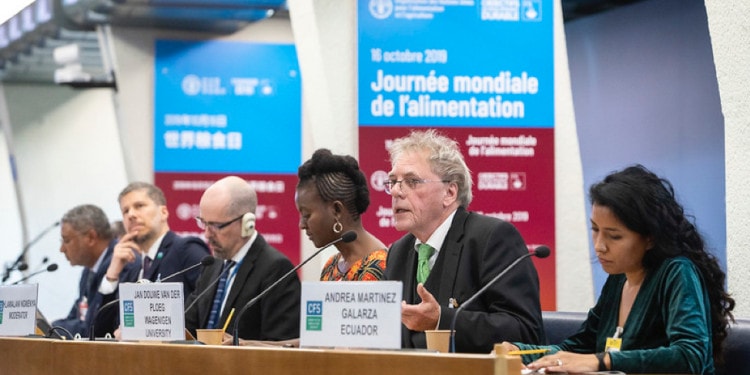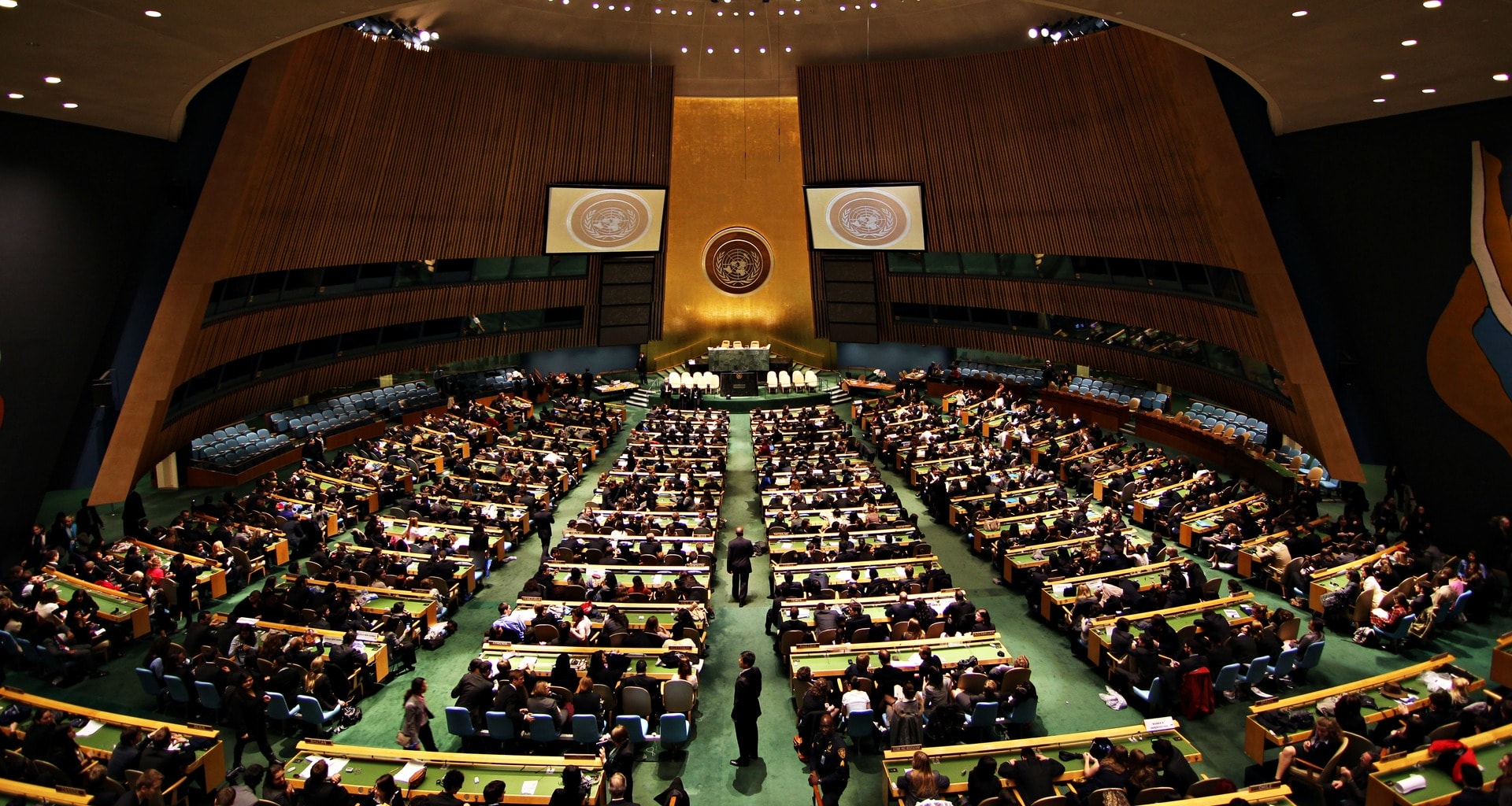UN Decade of Family Farming (2019-2028): How can the Decade benefit from the policy guidance produced by the Committee on World Food Security?
The answer to that question matters: The UN Decade of Family Farming (UNDFF) launched in May 2019 will run until 2028. The Decade doesn’t appear from nowhere, it builds on the success of the International Year of Family Farming in 2014. The Decade will focus efforts of the international community to work collectively on the design and implementation of comprehensive economic, environmental and social policies.
The purpose here is to highlight how the Decade can benefit from the policy guidance provided by the Committee on World Food Security (CFS).
Background
The Committee on World Food Security (CFS) has focused (and continues to focus) a significant part of its policy work on smallholders (small-scale producers and processors, pastoralists, artisans, fishers, communities closely dependent on forests). This policy work is an important contribution to the UN Decade of Family Farming (UNDFF), as more than 80% of family farms are small and as they occupy around 70-80% of farmland and produce more than 80% of the world’s food in value terms. Small farmers are therefore key players of the UNDFF.
In addition, a recent review of stakeholders’ experiences in applying three sets of CFS policy recommendations on smallholders provided relevant information to shape UNDFF’s strategy. These three sets of policy recommendations include:
- Investing in Smallholder Agriculture for Food Security and Nutrition (endorsed by the CFS in 2013);
- Connecting Smallholders to Markets (endorsed in 2016); and
- Sustainable Agricultural Development for Food Security and Nutrition: What Roles for Livestock? (endorsed in 2016).
More than 80% of family farms are small and they occupy around 70-80% of farmland and produce more than 80% of the world’s food in value terms.
The CFS is the United Nations inclusive political platform dealing with food security and nutrition. It focuses on coordination at global level and policy convergence to enhance food security and nutrition.
CFS policy guidance is primarily targeted at governments, supporting their efforts to design public policies to achieve food security and nutrition for all, advancing the 2030 Agenda for Sustainable Development. But it’s not for governments only. It is also used by other groups of stakeholders represented in the CFS, such as intergovernmental and regional organizations, UN agencies, civil society, private sector, academia, international financial institutions and philanthropic foundations.
The CFS focuses a significant part of its work on smallholders because they play a vital role in food security and nutrition. They themselves are often affected by food insecurity and malnutrition, as about 80% of the world’s poor and food insecure live in rural areas and most of the rural poor are small-scale family food producers. Smallholders also contribute to a vast range of benefits such as maintaining employment in rural areas, reducing poverty, and enhancing the sustainable management of natural resources.
Successful practices in implementing the policy recommendations
A recent review by the CFS highlighted some good practices associated with the successful application of CFS policy recommendations.
The review concluded that the participation of all groups of stakeholders in decision-making processes, with adequate representation, was the most important (and most often mentioned) factor of success in supporting smallholder initiatives. Governments at central and local levels, development agencies, civil society organizations, private sector, research institutions, academia and, above all, small peasant organizations should all be involved in these processes, encouraging convergence of efforts and dialogue.
The review also emphasized the importance of empowering stakeholders, particularly smallholders, enabling them to actively engage in the application of CFS policy recommendations in national and regional policies, programmes and investments, through awareness-raising events, dialogues and capacity building activities. These activities should promote the rights of smallholders, including of women and of vulnerable groups and indigenous peoples, thus contributing to the implementation of the recently approved UN Declaration on the Rights of Peasants and other People working in Rural Areas.
Related Articles: Association for Sustainable Development Alternatives: Protecting Biodiversity & Livelihoods | Deal of the Week: Natural Disasters Resilience in the Technology Age
The review drew attention on the need to contextualize CFS policy recommendations, developing tools and instruments, methodologies and training materials tailored to the needs of rural people and responding to their interests and specific situations.
Stakeholders’ experiences underscored the importance of providing adequate financial and technical resources to support and sustain the initiatives targeted to smallholders, especially female smallholders.
Last but not least, the review underlined the importance of sharing experiences in applying CFS policy recommendations on smallholders, including through the CFS platform, within and between countries and regions, so that all stakeholders can learn from each other and apply good practices and lessons to their specific context.
Conclusions
The CFS has produced substantial policy guidance on smallholders, which is very relevant to the UNDFF. The identification of the elements that have contributed to the successful application of some of the CFS policy recommendations is also helpful to shape the Decade’s strategy.
The UNDFF provides a good opportunity to spread awareness of the policy work of the CFS and help governments achieve economic, environmental, social, nutritional and health objectives, contributing to food security and nutrition.









